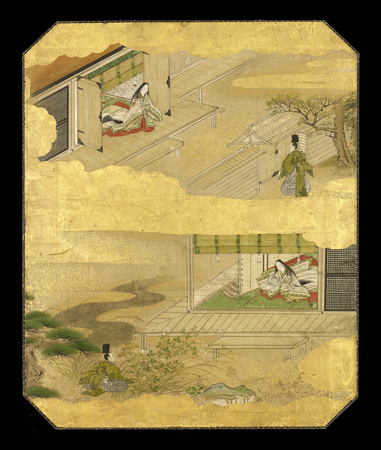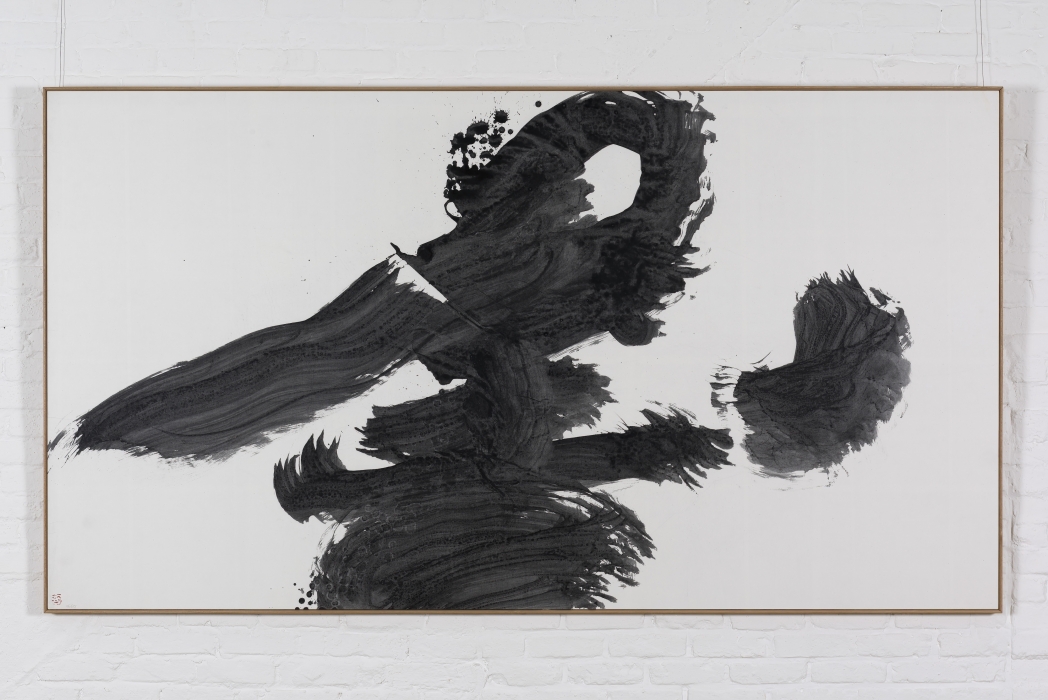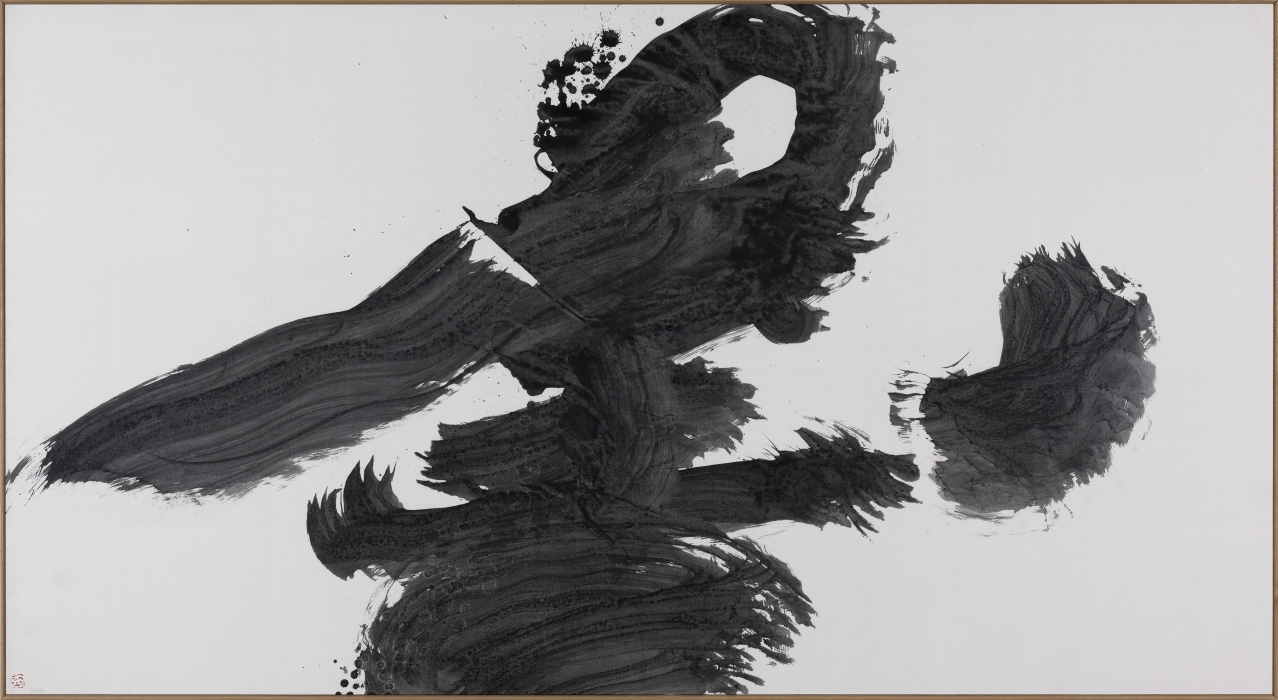Product Description
6489 A paper panel painted in ink and colour on a gold ground with scenes from Ise Monogatari (the Tales of Ise)
Japan Edo period 18th century
Dimensions: H.17¾” x W.14½” (44.75 cm x 36.5 cm)
This painting depicts two connected scenes from the 10th century literary classic, the Tales of Ise, the lower half illustrating Episode 23 and the upper half Episode 24.
The ‘Tale of Ise’ (Ise monogatari), 10th century is one of the most important texts of Japanese literature. It is a loose collection of medieval Japanese poems with brief prose introductions. This anonymous work is the oldest in the uta monogatari, or “poem tale,” genre. Although composed mostly of waka, a Japanese poetic form, the prose prefaces to these poems give the work a unique flavour, anticipating later developments in Japanese literature. Most of the poems deal with the amorous exploits of an unnamed lover, who is traditionally, identified as Ariwara no Narihira (825-80), one of the six “saints” of Japanese poetry. Ever since the 11th century, when the ‘Tales of Ise’ came to be seen as a kind of cultural icon, generations of scholars and writers have been puzzling over the numerous problems the text poses. While some may read the episodes as semi-biographical account of the romantic pursuits of Ariwara no Nahira; others have hailed the text as expressions of ‘true Japanese spirit’. There are 209 poems comprising the 125 sections of the work, and each section is a clever and elegant meditation on love outside of marriage.
In Episode 23 we can see a man crouching in the long grasses as he secretly watches his wife as she sits on the veranda. The young couple are presumed to be Ariwara no Narihira, the author of many of the poems in the Tales of Ise, and Ki no Aritsune’s daughter. This tale tells of how these childhood friends fall in love and marry, living happily until the young woman’s father dies. Having depended on her father for financial stability, Narihira takes to visiting a wealthy woman in Takayasu County of Kawachi Province, for which his wife strangely never reproaches him. Suspecting his wife of having a secret lover, Narihira pretends to set off on his journey to Kawachi but hides instead in the shrubbery to spy on her. Rather than welcoming a visitor, however, his wife gazes sadly before her and recites this poem:
kaze fukeba
okitsu shira-nami
tatsuta yama
yoha ni ya kimi ga
hitori koyuran
When the wild wind blows,
out upon the sea white waves
rise – Mount Tatsuta!
can you, by night, truly mean
to cross those hills all alone?
Narihira is so moved by her prayer for his safety that he gives up going to Kawachi.
The scene in Episode 24 (upper half) has traditionally been read as a continuation of Episode 23, with the man as Narihira and the woman as Aritsune’s daughter. With great regret, Narihira must leave his wife behind in the countryside to enter service in the Capital, although having not returned after three years his wife finally gives in to another man who has persisted in courting her, promising to be his that night. The very same day, her husband unexpectedly arrives, knocking at the door to be let in. She refuses to let him in, informing him that she has tired of waiting for three long years and has now promised herself to someone new. As Narihira leaves, she has a change of heart and declares her undying love for him, although it is too late and he has already gone. Chasing after him but unable to reach him, she collapses by a spring, heartbroken, and with the blood from her finger writes:
ahi-omohade
karenuruhito wo
todomekane
waga mi ha ima zo
kie-hatenumeru
He did not love me,
and now he has gone away:
I could not stop him,
and for me the time has come
to disappear from this life.
After writing this, she breathes her last breath.






